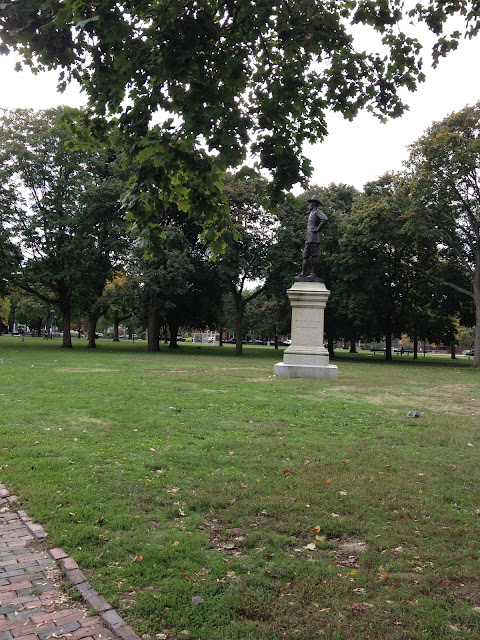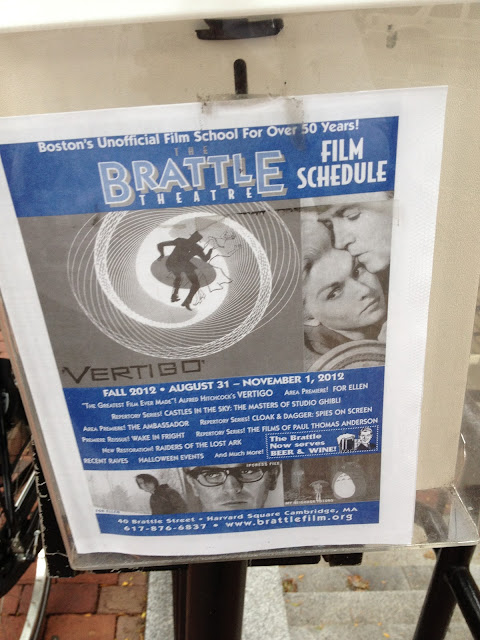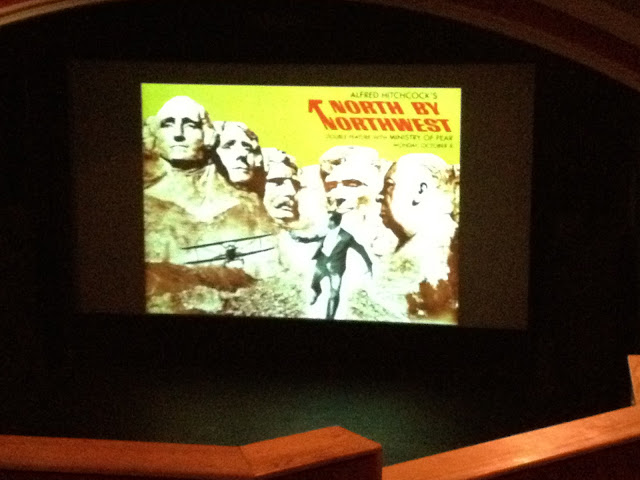I'm very proud to present a guest post by one of my closest and dearest friends Mark Zero. Mark and I met on Goodreads several years ago and became fast friends. We both share a passion for good books and good movies. Mark even officiated my wedding making that special day even more special to me.
Mark's new novel The French Art of Revenge just released and I implore you to check it out. It's available on Amazon and Barnes and Noble and it's the perfect sort of book for any Francophile who likes a good art heist.
In this guest post, Mark takes a look at three different versions of The Lady Vanishes starting with Hitchcock's version from 1938. Thank you so much Mark for such an informative post! Enjoy.
-----------------------------------------------------------------------------------------------------------------------
The Lady Vanishes by Mark Zero
When it appeared in 1938, Alfred Hitchcock’s thriller The Lady Vanishes became the highest grossing film ever in England, and the New York Times named it one of the year’s ten best pictures. It won Hitchcock the New York Film Critics Circle Award for Best Director (the only directing award he ever received), and its success convinced David O. Selznick to bring Hitch to Hollywood, where he would make the many films we know and fear him for today.
The Lady Vanishes is rarely mentioned among Hitchcock’s best, but The Guardian’s Philip French recently called it his all-time favorite, and last year’s BBC remake prompted a flurry of reappraisals. In this post, we’ll take a look back at the three cinematic versions of this classic story—Hitchcock’s blockbuster, the 1979 remake with Cybill Shepherd, and the 2013 BBC version—but let's begin with the original source material for all three films, Ethel Lina White’s 1936 novel The Wheel Spins, and how Hitchcock drastically alters its story.
 White wrote seventeen novels, one every year starting in 1927; the majority were mysteries, and most are now out of print. The Wheel Spins combines political intrigue in the Balkans with Victorian sentimentality in an uneven but entertaining psychological thriller. The story revolves around vacationing heiress Iris Carr and her ill-fated encounter with a British governess, Winifred Froy, on a train bound for Trieste.
White wrote seventeen novels, one every year starting in 1927; the majority were mysteries, and most are now out of print. The Wheel Spins combines political intrigue in the Balkans with Victorian sentimentality in an uneven but entertaining psychological thriller. The story revolves around vacationing heiress Iris Carr and her ill-fated encounter with a British governess, Winifred Froy, on a train bound for Trieste.It is the prim Miss Froy’s last day of employment in the service of the ruling family of an unnamed, unstable Balkan country. As she is preparing for her return journey to England, the governess has the misfortune of running into one of her employers, a Baron who is supposedly in Vienna but has, in fact, just murdered his chief political rival in a hunting lodge on his own property. Miss Froy is the only witness who can place him at the scene of the crime, but she knows nothing of the murder or the fact that she has spoiled the Baron’s alibi, so she innocently wishes the Baron well and trots down to the train station. Fearing that the chatty Miss Froy will unintentionally implicate the Baron in the murder, and not wishing to cause an international incident with England by abducting or killing Miss Froy in their Balkan homeland, the Baron and Baroness devise a diabolical plan to make the governess disappear in transit to Trieste while also absolving themselves of any suspicion for her disappearance.
Enter Iris Carr. Iris is an English aristocrat who has been on holiday with a group of ne’er-do-well high society friends. Bored with her companions, Iris decides to travel back to England alone, but at the train station she falls unconscious—whether from a mysterious blow to the head or sunstroke, the novel keeps us in doubt. Iris feels quite unwell by the time she takes her seat on the train opposite Miss Froy, in a compartment also occupied by the scheming Baroness!
Classic movie fans will instantly recognize the appeal of such a setup to Hitchcock, many of whose films feature an innocent Everyperson caught up in dangerous intrigues by being in the wrong place at the wrong time (think Cary Grant in North By Northwest, Robert Cummings in Saboteur, and Henry Fonda in The Wrong Man, just for starters).
Miss Froy invites Iris to join her in the dining car for tea, where she unwittingly lets slip the critical morsel of evidence that will convict the Baron of murder and perhaps overthrow his family’s regime. When they return to the compartment they share with the Baroness, Iris drifts off to sleep in her conked-head/sunstroke stupor and awakens some time later to find that Miss Froy and her luggage have disappeared! Worse still, the Baroness and all of her companions claim that Miss Froy never even existed!
The novel then becomes a taut, sometimes nightmarish psychodrama, in which Iris’s sense of self and sanity depend upon finding anyone at all who will corroborate the fact of Miss Froy. For the Baroness and her family, keeping Iris from discovering Miss Froy’s existence and whereabouts on the train is a matter of political survival, so they use all of their resources to encourage her to slowly go mad, and their plot is unwittingly abetted by several English travelers, who each have private and unrelated motives for pretending that they never saw Miss Froy.
At this point, Hitchcock's version veers radically away from the novel. In fact, the untangling of the mystery of Miss Froy’s disappearance becomes the main point of disagreement among the various versions, and how each one solves the mystery drastically changes the meaning of everything that has come before.
In the novel, after much intrigue, Iris discovers that the unfortunate governess has been bound and gagged and bandaged head to foot to resemble a burn victim in transit to a Trieste hospital for “emergency surgery.” Iris tears Miss Froy’s bandages off, revealing her true identity; the Baron’s intrigues are discovered; and Miss Froy returns to her home in the English countryside, where her parents and her loyal dog greet her. In fact, the main focus of the story shifts at the very end of the novel from Iris to Miss Froy, and what had been the harrowing tale of Iris’s fight to maintain her sanity becomes, in the end, a sentimental, slightly xenophobic story of the dangers of foreigners and the safety of home—a moral that Hitchcock wanted nothing to do with. He was more interested in cheeky dialogue and romance:
Hitchcock and screenwriters Sidney Gilliat and Frank Launder radically reworked great chunks of the middle, adding characters and inventing situations mainly for comic effect but also reshaping the narrative into a broader political thriller. Hitchcock’s version retains the novel's sense of British superiority; the unnamed Balkan country becomes the goofy fictional nation of Bandrika (with a made-up, infantile, gobbledygook language), and Miss Froy is no longer the innocent governess of the novel but rather an undercover operative of the British Foreign Office charged with delivering a vital secret message about Bandrika back to London. Thus, the Baroness’s plot to abduct and kill Miss Froy becomes an attempt to thwart the British Foreign Office, and a pitched battle between British passengers on the train and Bandrikan soldiers takes up most of the final third of Hitchcock's film. Iris’s psychodrama becomes a MacGuffin played mostly for laughs and used as an excuse to spark a romance between Iris (the fetching Margaret Lockwood) and the Cambridge-educated stranger she meets during her adventures, the upper-crusty Gilbert (a charming, blasé Michael Redgrave, in his first film role).
Most reviewers point to the wit of the screenplay and the elegant economy of Hitchcock’s direction as primary pleasures of the 1938 The Lady Vanishes, and many of the jokes do still seem fresh. Two characters invented out of whole cloth for the film, Charters and Caldicott—dry, cricket-obsessed Oxford men played by Basil Radford and Naunton Wayne with exquisite comic timing—were so popular with audiences that the screenwriters wrote them into two subsequent films (1940’s Night Train to Munich and 1943’s Millions Like Us), and they became something of a cottage industry afterward, appearing together in ten more films and a slew of BBC radio programs.
 All the comic high jinx, however, make the tone of Hitchcock’s film wildly uneven, and the movie ultimately becomes a farce with no emotional depth or satirical bite (imagine a Duck Soup in which the Marx Brothers try to make us actually care about the politics of Freedonia). When Charters is shot in the hand by Bandrikan soldiers, he reacts as if he’s merely been insulted, without even flinching at the bloody wound; and the other characters are quite nonchalant despite the flying lead, as if the pistols were popguns. Hitchcock plays one minor character's death (the philandering Mr. Todhunter's) as a joke, so that we can’t take Mrs. Todhunter's supposed grief seriously, no matter how melodramatically the beautiful Linden Travers acts it out; and Iris’s equally melodramatic fear for Gilbert’s life during the shootout feels put on. We have stopped suspending our disbelief: it’s all just playacting. A nun is shot in the back, soldiers fall mortally wounded next to the train, and when the English characters ultimately escape, the Baroness and her closest collaborator shrug and smile and actually wish them well, as if none of it ever mattered at all.
All the comic high jinx, however, make the tone of Hitchcock’s film wildly uneven, and the movie ultimately becomes a farce with no emotional depth or satirical bite (imagine a Duck Soup in which the Marx Brothers try to make us actually care about the politics of Freedonia). When Charters is shot in the hand by Bandrikan soldiers, he reacts as if he’s merely been insulted, without even flinching at the bloody wound; and the other characters are quite nonchalant despite the flying lead, as if the pistols were popguns. Hitchcock plays one minor character's death (the philandering Mr. Todhunter's) as a joke, so that we can’t take Mrs. Todhunter's supposed grief seriously, no matter how melodramatically the beautiful Linden Travers acts it out; and Iris’s equally melodramatic fear for Gilbert’s life during the shootout feels put on. We have stopped suspending our disbelief: it’s all just playacting. A nun is shot in the back, soldiers fall mortally wounded next to the train, and when the English characters ultimately escape, the Baroness and her closest collaborator shrug and smile and actually wish them well, as if none of it ever mattered at all. This dodgy tone is the guiding principle of the 1979 remake, which exaggerates the most farcical elements of Hitchcock’s version into a slapstick comedy so awful that it’s nearly impossible to stop watching it. Cybill Shepherd stars at the height of her beauty, a miscast Elliott Gould takes Michael Redgrave’s place, and Angela Lansbury plays Miss Froy as a dry run for her Jessica Fletcher character in the tv series Murder, She Wrote. This version sets the action in 1939 Bavaria, which is crawling with Nazis, and it opens in a German beer garden with Cybill Shepherd in a slinky white evening gown drunkenly mocking Der Fuhrer by wearing a black greasepaint mustache and yelling at SS soldiers in gibberish German. Shepherd keeps the mustache on for more than ten minutes of screen time, and it’s almost impossible to describe the mixed feelings you have watching this sublimely beautiful, statuesque blonde yipping ridiculous dialogue in a sexy gown and Hitler mustache. My advice is to drink your cocktails before you watch it. The film is unavailable in its original English on DVD, though you can still watch it online dubbed into German or Italian.
Surprisingly, the best version of The Lady Vanishes is the recent BBC remake, which is better even than the original novel, because it finds the story with the highest psychological stakes and sees it through to a satisfying ending, in which the main character genuinely changes as a result of her tribulations.
Where Margaret Lockwood played Iris as a pouting debutante, Tuppence Middleton plays her as a contemptuous, entitled snot who is selfish to the core when the story begins. The BBC narrative mainly cleaves to the plot of the novel (changing only the very ending); it dispenses with Hitchcock’s gunfights and spies and sticks to the story of a simple governess caught in politics over her head and a spoiled little rich girl who finds her own humanity by having it tested to the limit.
Though this telling lacks the wit of Hitchcock’s version, its tone is pitch-perfect and it homes in on Iris’s existential crisis, refusing to conclude with either the novel’s sentimental celebration of jolly old England or Hitchcock’s perfunctory wedding bells for the two stars. The BBC version is more typically Hitchcockian even than the Hitchcock version, since it makes the political intrigue the MacGuffin, while the real story is the heroine's emotional coming of age (much in the way the Nazi plot in Notorious is the MacGuffin for Cary Grant's transformation from cad to lover).
The novel The Wheel Spins is richly evocative line by line, keenly observant of Iris, and incredibly cinematic. You can read it for free at The Hitchcock Zone. Hitchcock's 1938 version of The Lady Vanishes rewards your ninety minutes’ investment with some sharp wit and genuine laughs, and you can watch it for free at The Internet Archive. And you can buy the BBC version at the BBC Store (or any number of other places) or watch the full film on YouTube with optional Portuguese subtitles.






%2Band%2BMiss%2BCarr%2B(Tuppence%2BMiddleton)%2BBBC.jpg)































